Find Help
More Items From Ergsy search
-
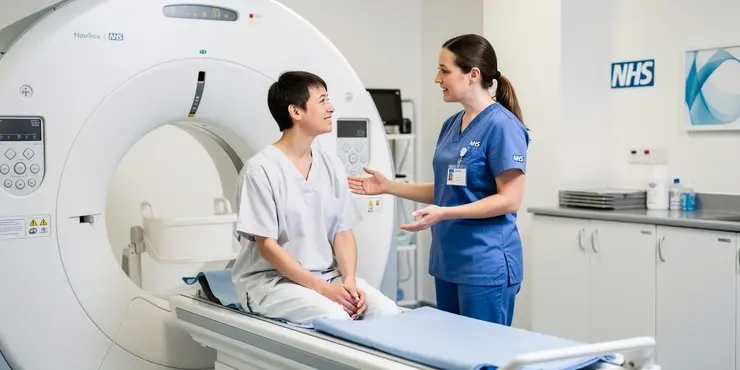
Going For a CT Scan
Relevance: 100%
-
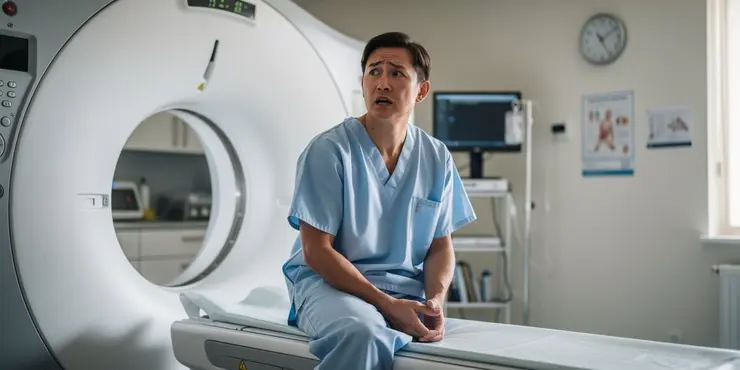
Going for an MRI Scan
Relevance: 95%
-
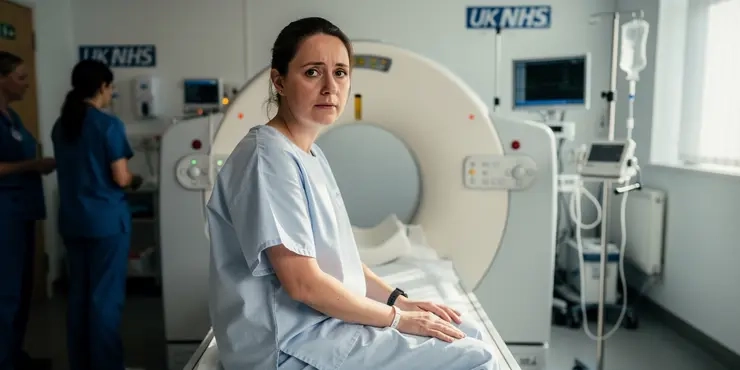
So, you're having a CT scan...
Relevance: 95%
-
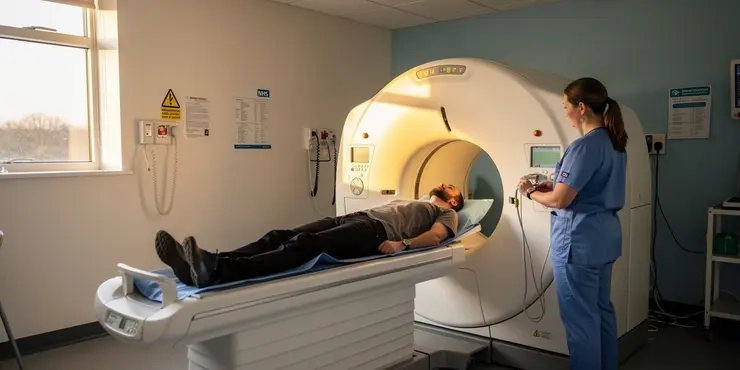
Having a CT Scan in Tayside
Relevance: 95%
-
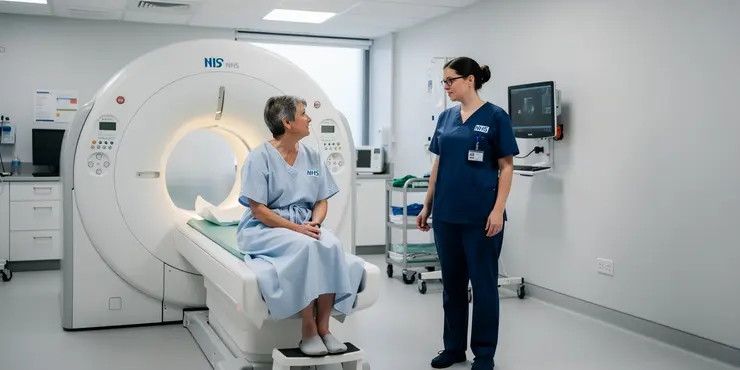
I'm having an MRI scan
Relevance: 95%
-
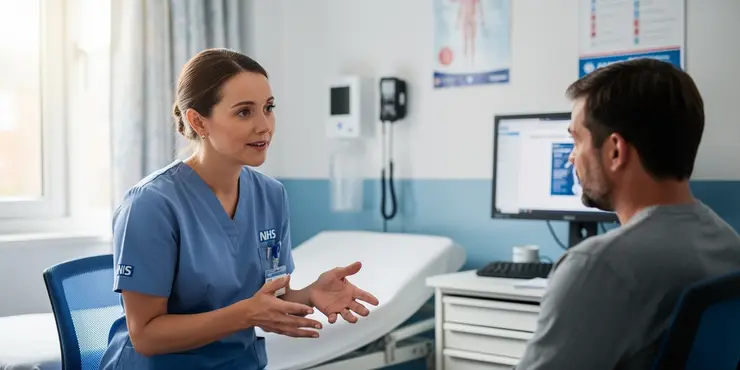
Are AI body scans reliable?
Relevance: 95%
-
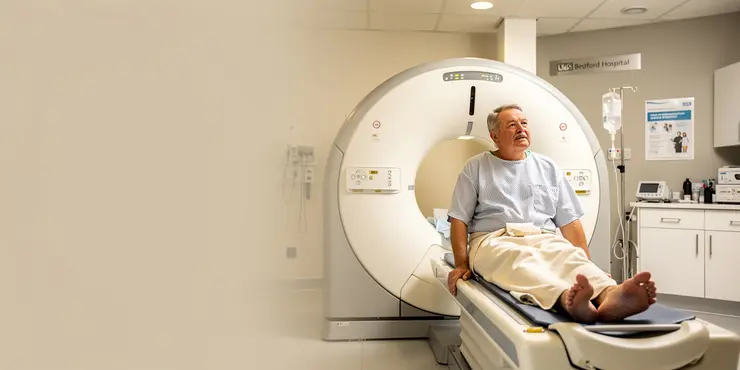
Having a CT scan in Hospital - What's it like having a CT scan at Bedford Hospital?
Relevance: 93%
-
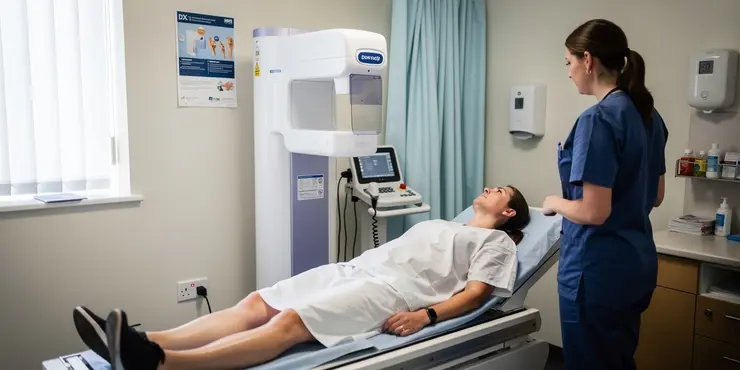
What to expect of a DXA Scan
Relevance: 91%
-
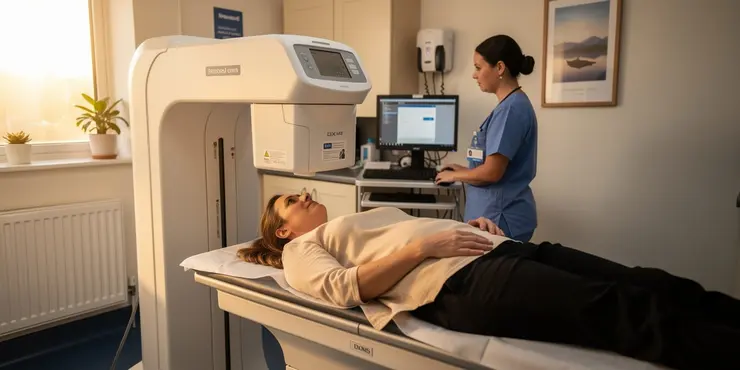
What to expect of a DXA Scan
Relevance: 91%
-
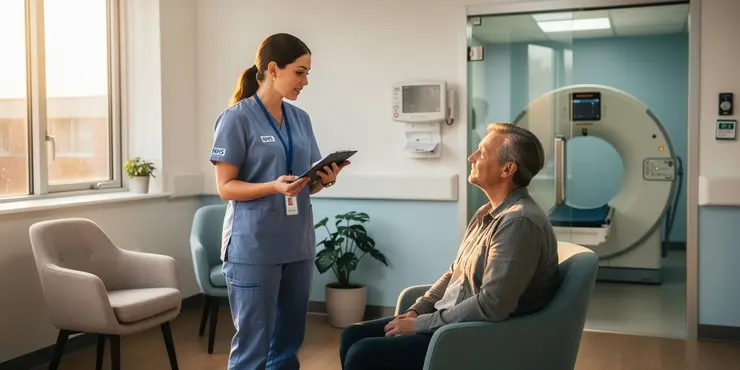
What is a low-dose CT scan for lung cancer?
Relevance: 87%
-
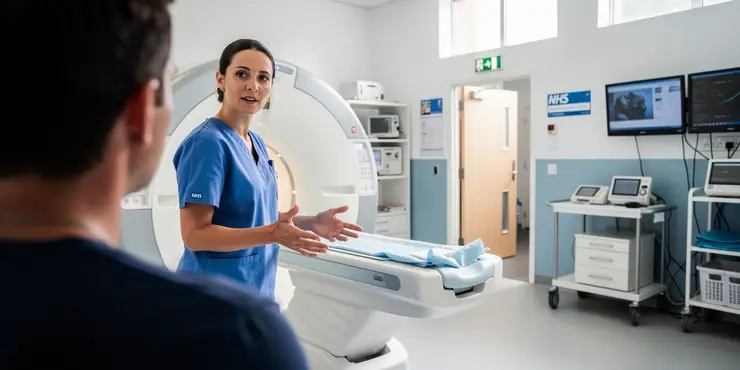
How Does an MRI Scan Work?
Relevance: 87%
-
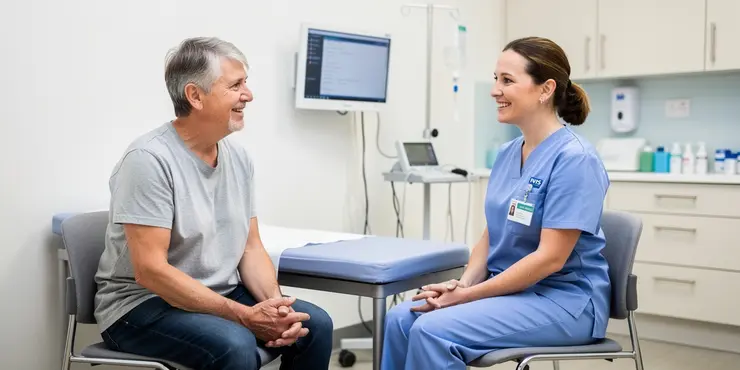
The FDG PET Scan: What to expect
Relevance: 87%
-
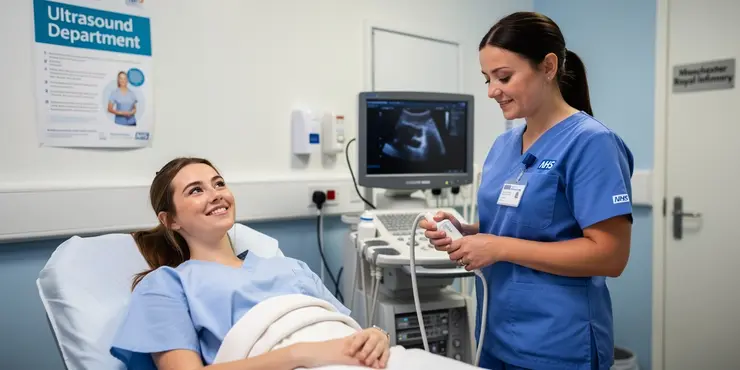
Having an Ultrasound scan at Manchester Royal Infirmary
Relevance: 84%
-

Your PET/CT scan at University College Hospital
Relevance: 83%
-
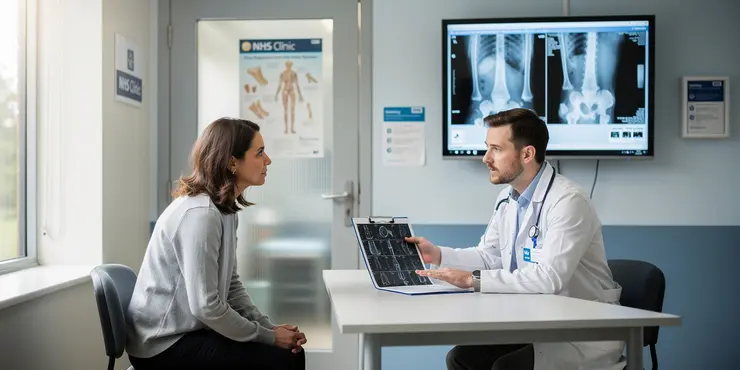
What is the purpose of a bone scan in prostate cancer treatment?
Relevance: 81%
-
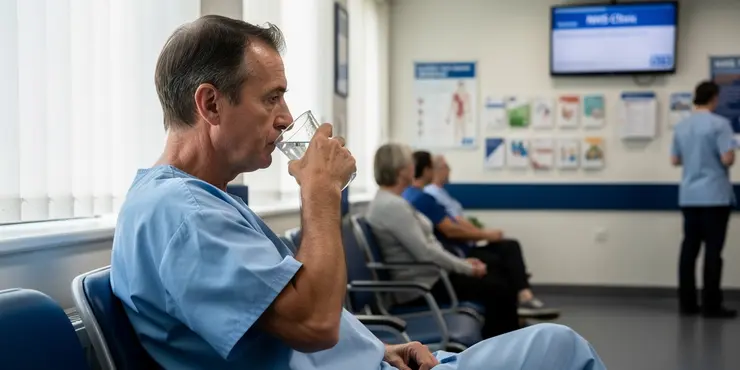
Patient video: What to expect when having a bone scan
Relevance: 78%
-
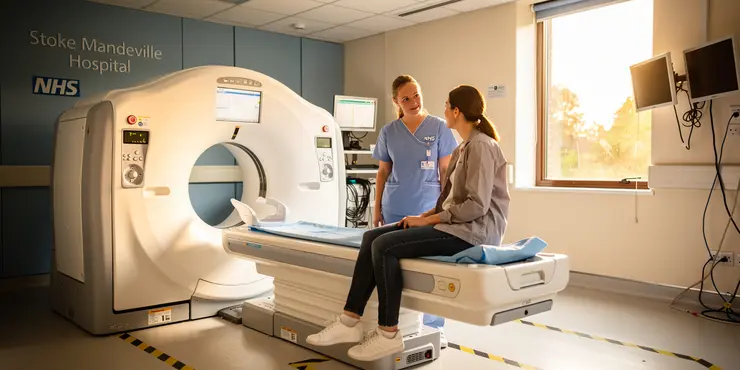
Having a CT Scan at Stoke Mandeville Hospital - Buckinghamshire Healthcare NHS Trust
Relevance: 76%
-
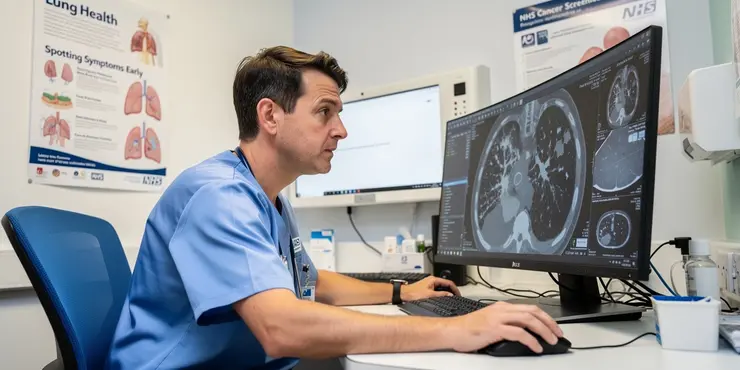
How do AI algorithms detect lung cancer in scans?
Relevance: 75%
-

MRI Scanner walkthrough - what to expect at your appointment
Relevance: 41%
-
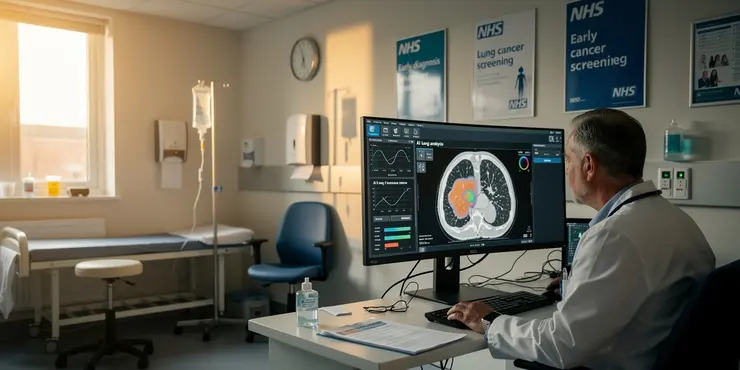
Which types of imaging data are analyzed by AI for lung cancer detection?
Relevance: 35%
-
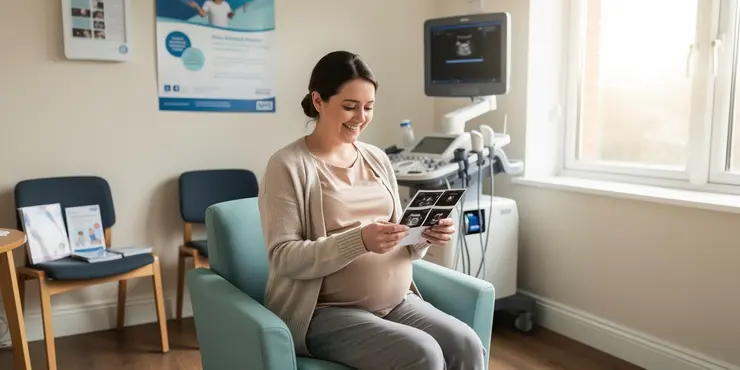
Screening tests for you and your baby | NHS
Relevance: 34%
-
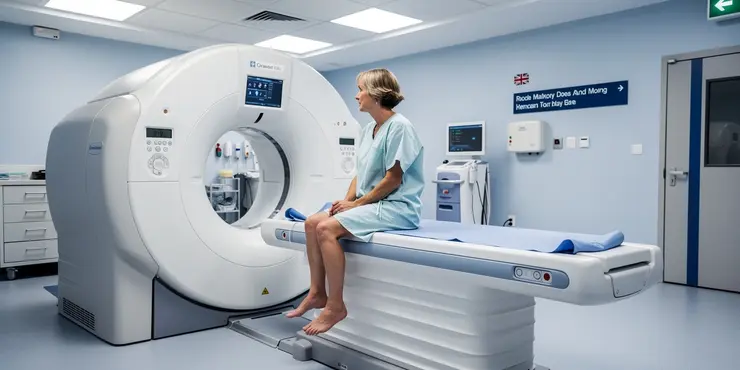
Radiotherapy CT scanner
Relevance: 32%
-
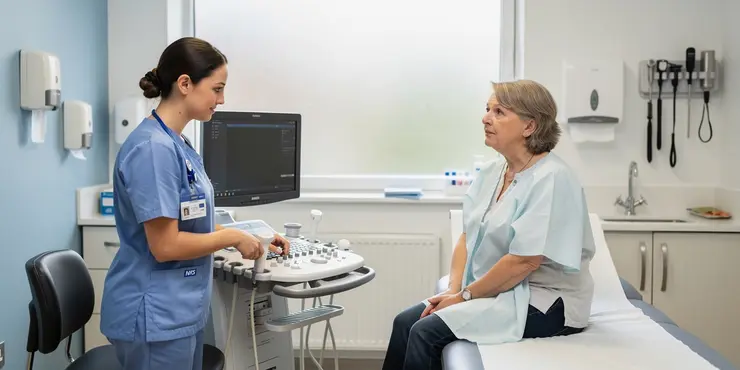
Your Ultrasound Appointment
Relevance: 32%
-
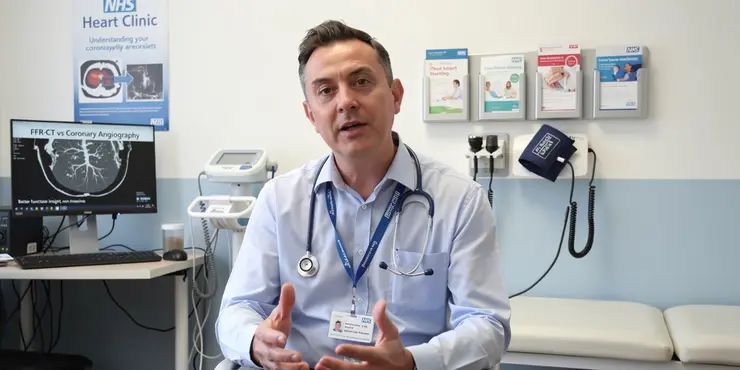
FFR-CT beat invasive conventional coronary angiography says a Cardiologist
Relevance: 31%
-
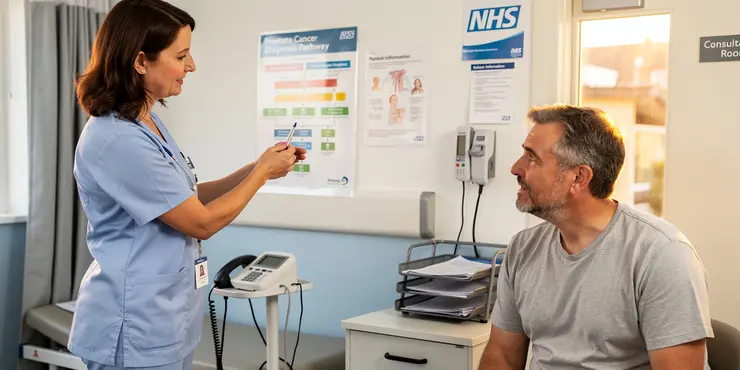
Prostate cancer diagnosis and tests
Relevance: 31%
-
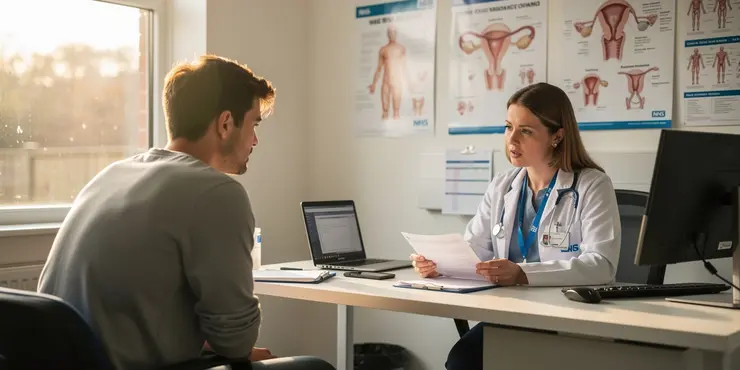
How is testicular cancer diagnosed?
Relevance: 30%
-
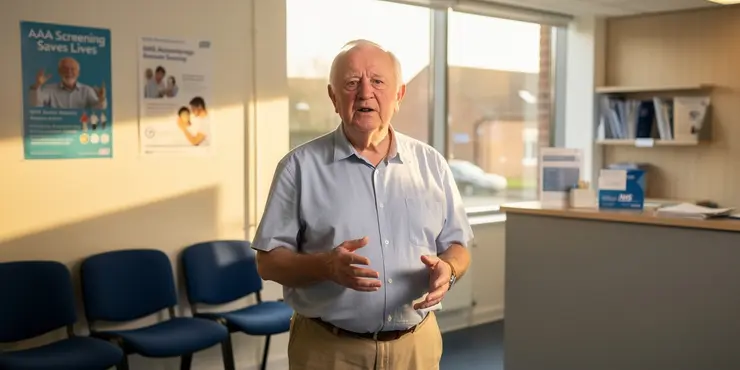
Survivor of an Abdominal Aortic Aneurysm rupture appeals for men to take up NHS Screening Programme.
Relevance: 30%
-
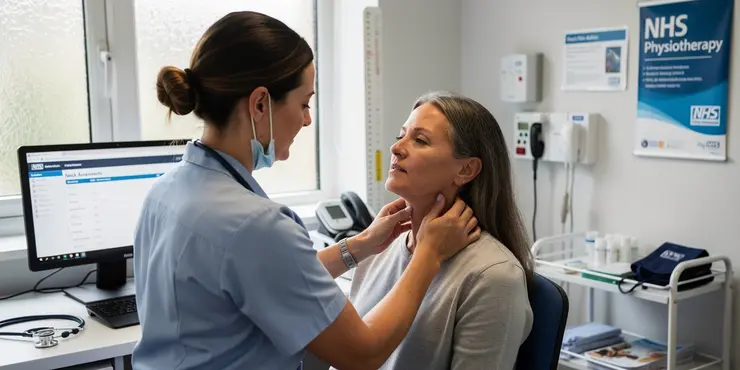
What medical tests are used to diagnose whiplash?
Relevance: 28%
-
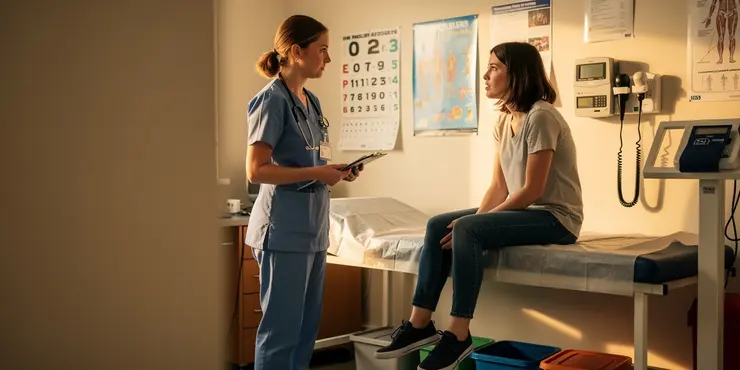
How is appendicitis diagnosed?
Relevance: 27%
-
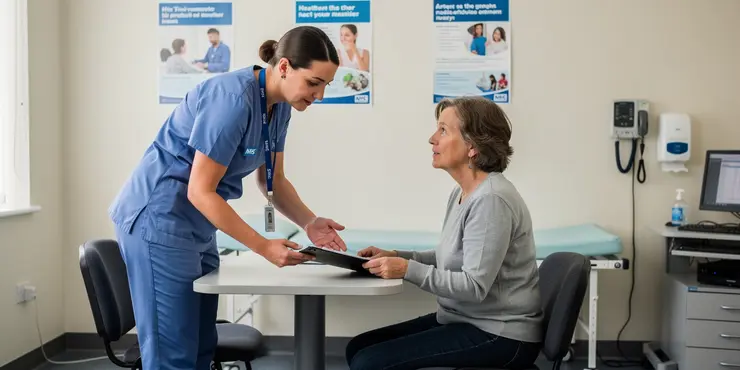
How can I secure my email after a hack?
Relevance: 26%
-
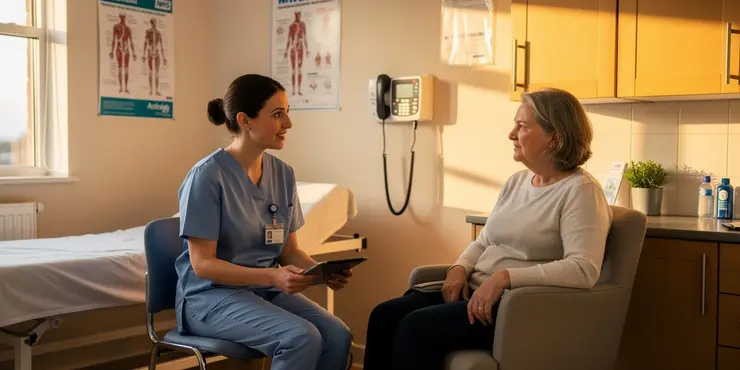
What should I do if I suspect my email has been compromised through phishing?
Relevance: 26%
-
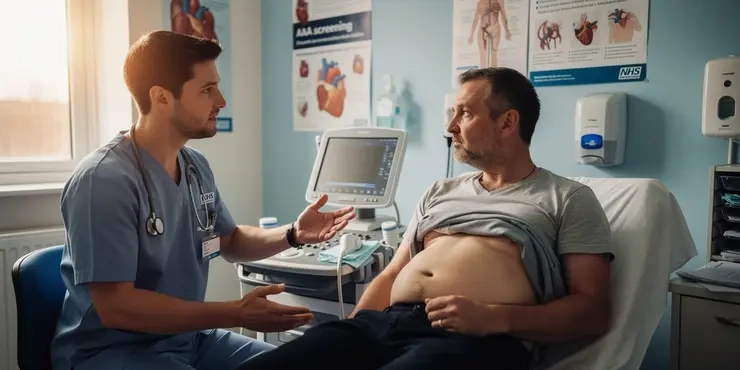
NHS Abdominal Aortic Aneurysm (AAA) Screening
Relevance: 25%
-
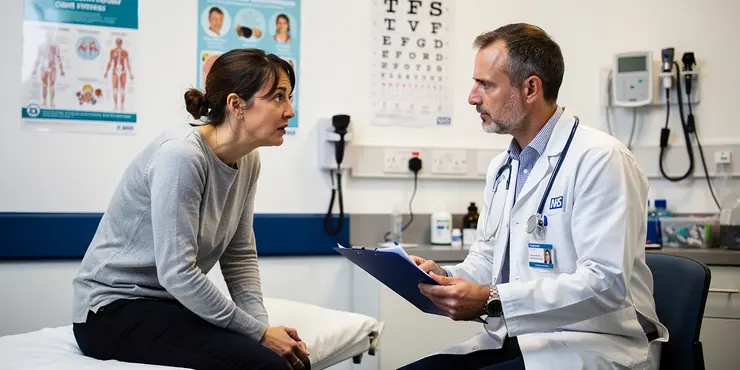
How is flesh-eating disease diagnosed?
Relevance: 24%
-
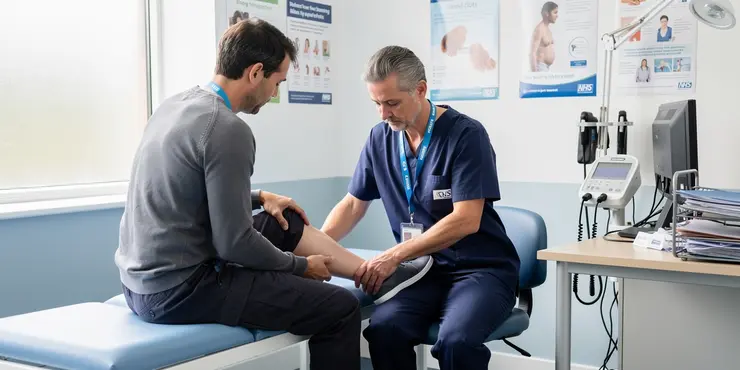
How is thrombosis diagnosed?
Relevance: 24%
-

Should I use antivirus software on my mobile phone?
Relevance: 23%
-
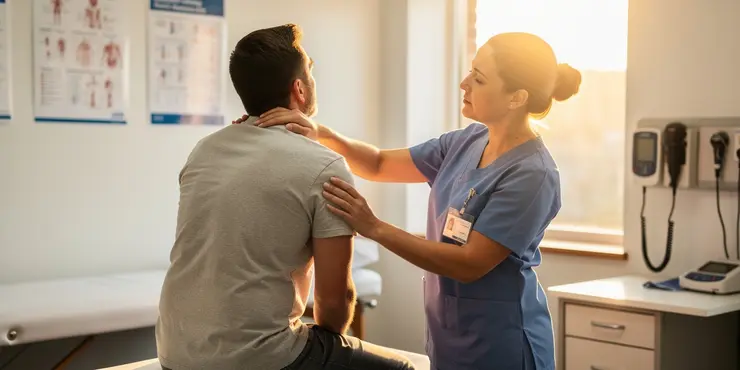
How is whiplash diagnosed?
Relevance: 23%
-
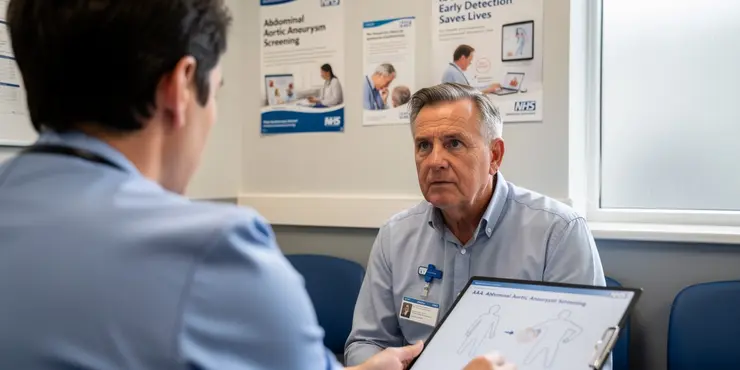
Your abdominal aortic aneurysm (AAA) screening appointment
Relevance: 23%
-
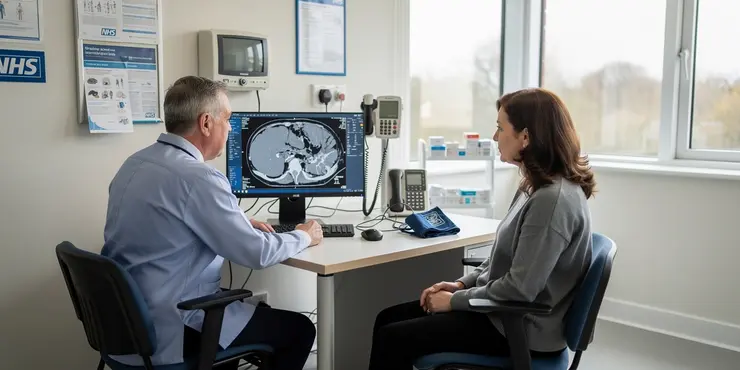
How are AI and Robots used to detect lung cancer?
Relevance: 23%
-
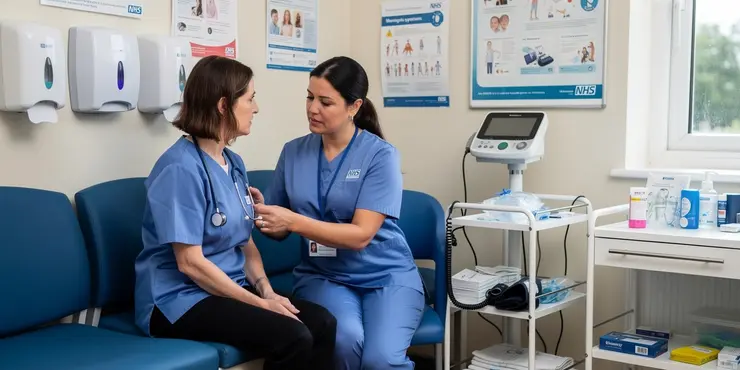
How is meningitis diagnosed?
Relevance: 22%
-
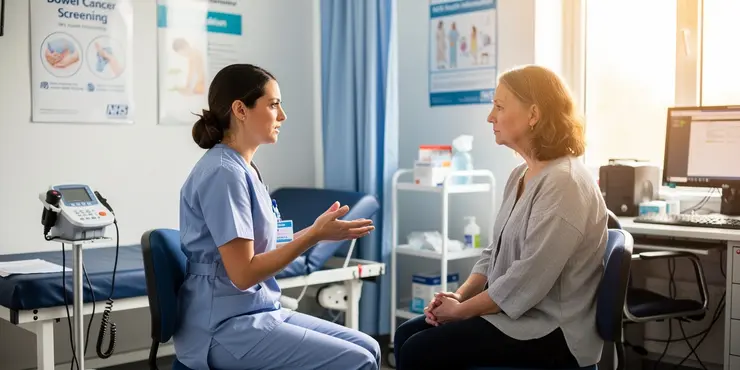
What kinds of cancer screening are available?
Relevance: 22%
Going For a CT Scan
What is a CT Scan?
A Computed Tomography (CT) scan is a medical imaging technique used to create detailed images of the inside of the body. It utilises X-rays and computer technology to generate cross-sectional views of bones, blood vessels, and soft tissues, which help doctors diagnose and monitor various conditions. CT scans are particularly useful for visualising complex structures that traditional X-rays cannot fully capture.
Preparing for Your CT Scan
Before your appointment, you may be asked to follow specific instructions to ensure the scan's accuracy. These can include fasting for a certain period, avoiding certain medications, and removing any metal objects such as jewellery. Your healthcare provider will inform you of any requirements based on the type of CT scan you are undergoing. It's also essential to inform your doctor if you are pregnant or have any allergies, especially to contrast materials used during some CT scans.
What to Expect During the Procedure
During the CT scan, you will be asked to lie on a motorised table that slides into the CT scanner, which is a large, doughnut-shaped machine. You may need to stay still and at times hold your breath while images are taken to avoid blurring. The procedure is painless, but some patients may feel a bit claustrophobic. If a contrast dye is required, it might be administered orally or injected, and you may experience a brief warm sensation or a metallic taste.
Post-Scan Considerations
After the CT scan, you can generally resume normal activities immediately unless otherwise advised by your healthcare provider. If you received a contrast dye, it's crucial to stay hydrated to help flush it out of your system. Your doctor will inform you about when to expect results and will discuss the findings with you, including any further actions if necessary. Generally, results are available within a few days, but this can vary depending on the complexity of the scan.
Frequently Asked Questions
Will It Hurt?
No, the CT scan itself is painless. Some discomfort might arise from having to lie still or from the contrast dye.
How Long Does It Take?
The scan typically lasts between 10 to 30 minutes. However, preparation and waiting times may extend your visit to an hour or more.
Is It Safe?
CT scans involve low levels of radiation, which are generally considered safe for most individuals. However, they are not usually recommended for pregnant women due to potential risks to the unborn child.
Going For a CT Scan
What is a CT Scan?
A CT scan is a special kind of X-ray. It helps doctors see inside your body. A machine takes pictures of your bones and insides. This helps doctors find out what's wrong.
Preparing for Your CT Scan
Before your scan, you might need to do some things. You could be asked not to eat for a few hours. You might have to take off jewellery. Your doctor will tell you what you need to do. Tell your doctor if you are pregnant or if you are allergic to anything.
What to Expect During the Procedure
During the scan, you will lie on a table. The table moves into a big machine shaped like a doughnut. You should stay still and sometimes hold your breath so the pictures are not blurry. The scan does not hurt, but you might feel a bit scared inside the machine. If a special dye is used, you might feel warm or taste something funny.
Post-Scan Considerations
After the scan, you can go back to your normal activities. If you had a dye, drink lots of water to help it leave your body. Your doctor will tell you when the results are ready and explain what they mean.
Frequently Asked Questions
Will It Hurt?
No, the scan does not hurt. But lying still might be a bit uncomfortable.
How Long Does It Take?
The scan takes 10 to 30 minutes. But you might stay longer at the hospital.
Is It Safe?
CT scans are safe for most people. But they are not safe for pregnant women.
Frequently Asked Questions
What is a CT scan?
A CT (computed tomography) scan is a diagnostic medical imaging test that uses X-rays and computer technology to create detailed images of the inside of your body.
Why do I need a CT scan?
A CT scan can help diagnose various conditions, plan medical or surgical treatment, and monitor the effectiveness of treatment.
How do I prepare for a CT scan?
Preparation depends on the type of CT scan you are having. Generally, you may need to avoid eating or drinking for a few hours before the scan. You should also remove any metal objects, such as jewellery, as they can affect the images.
Can I take my medication before a CT scan?
You should continue to take prescribed medication unless advised otherwise by your doctor. If you are unsure, consult your healthcare provider.
Will I need a contrast dye?
Depending on the type of scan, you may need a contrast dye to highlight certain areas of your body. This is usually given through an injection or orally.
What should I expect during the CT scan?
You will lie on a table that slides into a large, doughnut-shaped machine. The radiographer will control the scanner from another room but communicate with you via an intercom. You need to stay still, and you may be asked to hold your breath for short periods.
How long does a CT scan take?
A CT scan typically takes about 10 to 30 minutes, depending on the part of the body being examined and whether a contrast dye is used.
Are there any risks associated with a CT scan?
CT scans do involve exposure to a small amount of radiation. However, the benefits of an accurate diagnosis generally outweigh the risks. If you are pregnant or have any concerns, discuss them with your doctor.
What should I do after the CT scan?
You can usually return to your normal activities immediately after the scan. If you had a contrast dye, you might be advised to drink plenty of fluids to help flush it out of your system.
When will I get my CT scan results?
A radiologist will analyze the images and send a report to your referring doctor, who will discuss the results with you. This process may take a few days.
Can I eat and drink after my CT scan?
Yes, you can resume eating and drinking as normal unless advised otherwise by your healthcare provider, particularly if a contrast dye was used.
Will the CT scan be uncomfortable?
The scan itself is generally painless. You may feel a slight discomfort from lying still or from the injection of the contrast dye.
Can I drive after my CT scan?
Yes, you can drive unless you've been given a sedative or advised otherwise. If you feel unwell after the scan, it’s best to arrange for someone to drive you home.
What if I am claustrophobic?
If you have claustrophobia, inform your doctor and the radiographer before the scan. They can provide support and, if necessary, a mild sedative to help you feel more comfortable.
Is a CT scan available on the NHS?
Yes, CT scans are available on the NHS. Your doctor will refer you if they think you need one. Alternatively, you can choose to have the scan done privately.
What is a CT scan?
A CT scan is a special kind of picture of the inside of your body. It helps doctors see what's happening inside you.
When you have a CT scan, you lie very still on a table. The table moves inside a big, round machine. The machine takes many pictures of your body.
CT scans help doctors find out if you have any problems inside your body. This can help them decide the best way to make you feel better.
You can ask an adult to explain more. You can also use picture cards to help understand what happens during a CT scan.
A CT scan is a special test that helps doctors see inside your body. It uses X-rays and a computer to make pictures.
Why do I need a CT scan?
A CT scan is a special picture of the inside of your body. It helps doctors see if something is wrong or if you are healthy. You might need it if you have pain, if you are hurt, or if you are sick. It helps doctors decide the best way to help you feel better.
Here are some tips to make it easier:
- Ask your doctor to explain the CT scan to you.
- Bring a friend or family member to help you feel safe.
- You can also ask for pictures or videos to understand it better.
A CT scan is a special kind of X-ray. It helps doctors find out what is wrong inside your body. Doctors use it to plan how to make you better or see if your treatment is working.
How do I get ready for a CT scan?
Getting ready for a CT scan depends on what kind of scan you need. Usually, you might need to stop eating or drinking for a few hours before the scan. You should also take off any metal things, like jewelry, because they can mess up the pictures.
Can I take my medicine before a CT scan?
Ask your doctor or nurse if it is okay to take your medicine before a CT scan. Sometimes, you might need to wait. A doctor or nurse can help you understand what to do.
Here are some tips:
- Write down your medicines and show the list to your doctor.
- Ask someone to help you remember what the doctor says.
- Use a calendar or alarm to know when to take your medicine.
Keep taking your medicine unless your doctor says to stop. If you are not sure, ask your doctor or nurse for help.
Do I need a special dye?
Sometimes doctors use a special dye in tests. The dye helps doctors see things better inside your body. Ask your doctor if you need it.
If you want help understanding, you can ask a friend or a family member to go with you. They can help listen and ask questions.
Sometimes, the doctors need to see certain parts of your body better during a scan. They use a special dye to help with this. The dye can be given as a drink or a little injection.
What happens in a CT scan?
A CT scan is a special picture of the inside of your body.
You will lie down on a bed. The bed will move slowly through a big machine shaped like a donut. The machine takes pictures.
You need to stay still. Staying still helps the pictures come out clear.
It will not hurt. It might be noisy, but that is okay. You can close your eyes if it helps.
If you feel worried, tell the person helping you. They are there to help and make sure you are okay.
You will lie on a table. The table will move into a big, doughnut-shaped machine. The person operating the machine is called a radiographer. They will be in another room. But you can still talk to them through a speaker. You need to keep very still. You might also need to hold your breath for a little bit.
How long does a CT scan take?
A CT scan usually takes about 10 to 30 minutes. It is like taking special pictures inside your body. You might need to lie still and hold your breath for a short time.
Tip: If you have trouble sitting still or feel scared, bring a toy or something that makes you feel calm and happy.
A CT scan is a special picture of the inside of your body. It usually takes 10 to 30 minutes. How long it takes can change. It depends on what part of your body the doctor is looking at. It also depends on if a special dye is used.
Can a CT Scan be Bad for You?
A CT scan is a special kind of picture of the inside of your body. Doctors use it to see what is wrong or to help you get better.
Is it Safe?
Most of the time, a CT scan is safe. But it uses a little bit of radiation, which is a kind of energy. Too much radiation can be unhealthy.
How to Stay Safe:
- Ask the doctor why you need the scan.
- Let the doctor know if you have had many scans before.
- Wear special coverings if needed.
Always talk to your doctor if you have any worries. They can help you understand more and make sure everything is okay.
Support Tools:
It might be helpful to have someone with you who can explain things. Ask the doctor to use pictures or simple words if you need them.
CT scans use a little bit of radiation. But, finding out what is wrong is usually more important than the small risk. If you are going to have a baby or are worried, talk to your doctor.
If you need help understanding, you can use picture cards or ask someone to explain it in a different way.
What should I do after the CT scan?
1. Rest: After your CT scan, take it easy. Relax for a bit.
2. Drink Water: Drink lots of water. It helps clear any medicine from your body.
3. Ask Questions: If you feel unsure, ask the nurse or doctor. They can help you.
4. Follow Instructions: The doctor might give you special instructions. Listen and follow them.
5. Use a Reminder: If you need help remembering things, use a phone or write notes.
6. Call for Help: If you feel unwell, tell someone. You can also call your doctor.
7. Relax: It's okay to take it easy for the rest of the day.
You can usually go back to doing your usual activities right after the scan. If you had a special dye put into your body during the scan, the doctor might tell you to drink a lot of water to help get the dye out of your body.
When will I know my CT scan results?
After your CT scan, you will get the results. This can take a few days.
If you have questions, ask your doctor or nurse.
Here are some tips to help you understand:
- Write down what the doctor says.
- Ask a friend or family member to be with you. They can help you remember the details.
- Use a calendar to mark the days when you need to talk to the doctor.
A doctor called a radiologist will look at the pictures. They will send a report to your doctor. Your doctor will talk to you about what the report says. This might take a few days.
Can I eat and drink after my CT scan?
Yes, you can eat and drink after your CT scan. Here are some helpful tips:
- Have a snack or meal if you are hungry.
- Drink water to stay hydrated.
If you feel sick after the scan, tell a grown-up or ask your doctor.
Yes, you can eat and drink like normal. But if your doctor says not to, do what they say. This is important if you had a special test with a dye.
Will the CT scan hurt?
The scan does not hurt. You might feel a little uncomfortable because you have to lie still or because of the special dye injection.
Can I drive after my CT scan?
After your CT scan, it might not be safe to drive. CT scans are pictures of the inside of your body. Sometimes, you might feel sleepy or dizzy after the scan.
Here’s what you can do:
- Ask someone to drive you home.
- Take a taxi or use public transport.
- Rest at the hospital until you feel better.
If you have questions, ask the nurse or doctor. They can help you.
Yes, you can drive. But you should not drive if you got medicine that makes you sleepy. If the doctor told you not to drive, then don’t. If you feel sick after the scan, it’s a good idea to have someone else drive you home.
What if I am scared of small spaces?
If you are scared of small spaces, tell your doctor and the person taking your scan. They can help you. They might give you some medicine to make you feel calm.
Can you get a CT scan with the NHS?
Yes! You can get a CT scan through the NHS. A CT scan is a special picture of the inside of your body. If your doctor thinks you need one, they will help you. They will explain what will happen and answer any questions.
If you find reading hard, you can:
- Ask someone to read with you and talk about it together.
- Use a computer or tablet to read the words out loud.
- Highlight important words to focus on them.
- Break information into small parts to understand better.
Yes, you can get a CT scan with the NHS. Your doctor will tell you if you need one. You can also pay to have it done privately.
Useful Links
This website offers general information and is not a substitute for professional advice.
Always seek guidance from qualified professionals.
If you have any medical concerns or need urgent help, contact a healthcare professional or emergency services immediately.
Some of this content was generated with AI assistance. We’ve done our best to keep it accurate, helpful, and human-friendly.
- Ergsy carfully checks the information in the videos we provide here.
- Videos shown by Youtube after a video has completed, have NOT been reviewed by ERGSY.
- To view, click the arrow in centre of video.
- Most of the videos you find here will have subtitles and/or closed captions available.
- You may need to turn these on, and choose your preferred language.
- Go to the video you'd like to watch.
- If closed captions (CC) are available, settings will be visible on the bottom right of the video player.
- To turn on Captions, click settings .
- To turn off Captions, click settings again.
More Items From Ergsy search
-

Going For a CT Scan
Relevance: 100%
-

Going for an MRI Scan
Relevance: 95%
-

So, you're having a CT scan...
Relevance: 95%
-

Having a CT Scan in Tayside
Relevance: 95%
-

I'm having an MRI scan
Relevance: 95%
-

Are AI body scans reliable?
Relevance: 95%
-

Having a CT scan in Hospital - What's it like having a CT scan at Bedford Hospital?
Relevance: 93%
-

What to expect of a DXA Scan
Relevance: 91%
-

What to expect of a DXA Scan
Relevance: 91%
-

What is a low-dose CT scan for lung cancer?
Relevance: 87%
-

How Does an MRI Scan Work?
Relevance: 87%
-

The FDG PET Scan: What to expect
Relevance: 87%
-

Having an Ultrasound scan at Manchester Royal Infirmary
Relevance: 84%
-

Your PET/CT scan at University College Hospital
Relevance: 83%
-

What is the purpose of a bone scan in prostate cancer treatment?
Relevance: 81%
-

Patient video: What to expect when having a bone scan
Relevance: 78%
-

Having a CT Scan at Stoke Mandeville Hospital - Buckinghamshire Healthcare NHS Trust
Relevance: 76%
-

How do AI algorithms detect lung cancer in scans?
Relevance: 75%
-

MRI Scanner walkthrough - what to expect at your appointment
Relevance: 41%
-

Which types of imaging data are analyzed by AI for lung cancer detection?
Relevance: 35%
-

Screening tests for you and your baby | NHS
Relevance: 34%
-

Radiotherapy CT scanner
Relevance: 32%
-

Your Ultrasound Appointment
Relevance: 32%
-

FFR-CT beat invasive conventional coronary angiography says a Cardiologist
Relevance: 31%
-

Prostate cancer diagnosis and tests
Relevance: 31%
-

How is testicular cancer diagnosed?
Relevance: 30%
-

Survivor of an Abdominal Aortic Aneurysm rupture appeals for men to take up NHS Screening Programme.
Relevance: 30%
-

What medical tests are used to diagnose whiplash?
Relevance: 28%
-

How is appendicitis diagnosed?
Relevance: 27%
-

How can I secure my email after a hack?
Relevance: 26%
-

What should I do if I suspect my email has been compromised through phishing?
Relevance: 26%
-

NHS Abdominal Aortic Aneurysm (AAA) Screening
Relevance: 25%
-

How is flesh-eating disease diagnosed?
Relevance: 24%
-

How is thrombosis diagnosed?
Relevance: 24%
-

Should I use antivirus software on my mobile phone?
Relevance: 23%
-

How is whiplash diagnosed?
Relevance: 23%
-

Your abdominal aortic aneurysm (AAA) screening appointment
Relevance: 23%
-

How are AI and Robots used to detect lung cancer?
Relevance: 23%
-

How is meningitis diagnosed?
Relevance: 22%
-

What kinds of cancer screening are available?
Relevance: 22%


